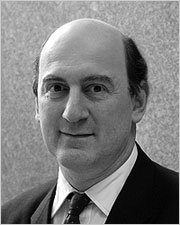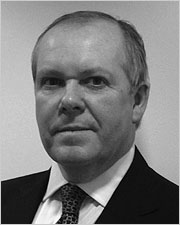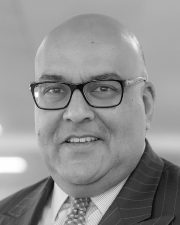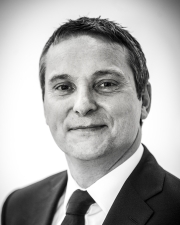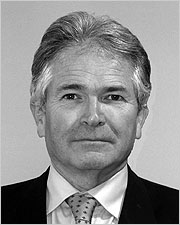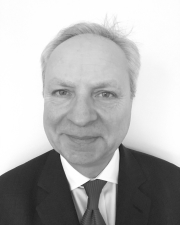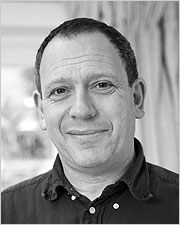Lord James of Blackheath said the following as part of the debate (taken from Hansard):
My Lords, before I start, I place on record that before speaking tonight I took counsel and guidance from the clerks—although from none of those who have been here tonight, so they can all relax—on whether there was any risk of me going sub judice on anything that I am about to say. They have assured me that there is not, for which I am grateful.
My subject is LIBOR and a sequence of four cases which have passed through the High Court in the last 18 months. There have been 15 prosecutions, five convictions, two cases where the juries have failed to agree and eight acquittals. We are now left with so many confusions and unresolved issues from this process and our parallel LIBOR market in Europe, called Euribor, is complaining so much that it may seek to shut us out and take the entire market, to our significant financial detriment. It is rather the reverse of the old Groucho Marx comment, “You wouldn’t join a club that would have you as a member”. We wish to remain in the club that does not want to have us as a member and this is a serious predicament.
The key issues are these. First, we are apparently at variance with the entire remainder of Europe, which has stated categorically that it will have no LIBOR prosecutions for any incident that occurred before 15 April 2013, as the new regulations came in on that date. All the prosecutions that we have seen go back as far as August 2006, so they would not have been relevant.
Secondly, the rest of Europe has been greatly upset by comments made by no less than the Lord Chief Justice in determining one of the appeal processes relating to these cases. He said that the bank’s positions in these LIBOR cases could have no link to the relevant indexes of the day when the deals were struck. That is not only fundamentally wrong; it is arrant nonsense, if I may be so bold. In any financial market, the bank’s position will always have a link to any index.
A range of possible rates could apply. That point was accepted by the FCA in the extraordinary disciplinary process that it mounted and completed just a few weeks before the start of the LIBOR cases, all of which involved the UBS bank and particularly its principal LIBOR trader—a man called Tom Hayes. The FCA, quite reasonably—expecting that this case would produce some prosecutions—set out to prepare the way for a lifetime ban on the other UBS staff who had been working on LIBOR. In doing so, it first convened its disciplinary committee, consisting of five people and 15 expert advisers. It sat intermittently over a three-month period and came up with three absolutely critical conclusions.
The first was that all LIBOR, in contravention of what the prosecution was saying in these cases, was based on daily fixings in something acknowledged as “the range”, which limited the minimum and maximum spot fixings that could be achieved. Secondly, the committee confirmed that the range had been correctly applied throughout all the cases that had gone through UBS and that there was no sign of any dishonesty whatever in that process. Thirdly, it then looked at the rest of the situation and said that the senior executive to whom Mr Hayes had had to report his fixings each day had behaved perfectly correctly. It said that there was no question of his disqualification and all accusations were binned.
Given those circumstances, that would have been a hugely valuable piece of information to have passed into the jury’s knowledge. Indeed, the FCA sent a copy of its report of the proceedings to the Serious Fraud Office, asking that it be placed in the hands of the defence counsel for the trial. Three weeks into the trial, it was found that the SFO had never released the report, and it was never seen again. The judge refused to allow it to be submitted as late evidence and the jury accordingly convicted. My Hayes was sent to prison for 13 and a half years and a confiscation order for £1.8 million was passed upon him—it realised only £800,000 but we cannot win on all things. He has almost 10 and a half years of his sentence still to serve, but I am sure it is a great consolation for him to know that the FCA thought his boss perfectly innocent of any accusation in the process that has now lumbered him with slopping-out every morning as he ticks another day off his sentence.
Having started off trying to circumvent the trial process by going for a common-law prosecution—they could not do it under the LIBOR rules due to the European restriction—they then gave themselves the task that although it was a common-law prosecution, they had to recreate a knowledge of LIBOR in the minds of the jury to understand the whole process. The SFO, ever helpful in these matters, provided an expert witness. He was a great success, and ran through every trial. However, in the fourth trial, he broke down and confessed that he did not know the first thing about LIBOR, had never worked a day in the LIBOR market and had been given coaching by the SFO as to what to say to convince the jury—that is splendid British justice for us.
The new Government need to address three separate and vital LIBOR issues. First, as a matter of common justice they need to decide how we are going to sort out the mess we are in with this one. Secondly, we have to work out how we are going to amend the statute book and codes of practice to ensure that we are clean for the future. Thirdly, we have to get ourselves back into LIBOR permanently and stay there. If we do not, we are all going to hell in a handcart and nothing in our financial services market is going to save us. This is a real issue and we need to address it very urgently. I commend it to the attention of the incoming Government.”.
For full text of the debate please click here.
Expert Evidence Limited prides itself on assisting throughout the legal process where required and is a professional firm concentrating on the four main areas of dispute resolution; acting as expert witnesses in financial litigation, mediation, arbitration and adjudication. The firm has a civil, criminal and international practice and has advised in many recent cases. Areas of specialisation include banking, lending, regulation, investment, and tax.
Ask a question about Expert Witness services. We are here to help!
Disclaimer – Please confirm any of the above views with your solicitor. Expert Evidence takes no responsibility or provides any guarantee that the views above are correct for your particular case or jurisdiction.



